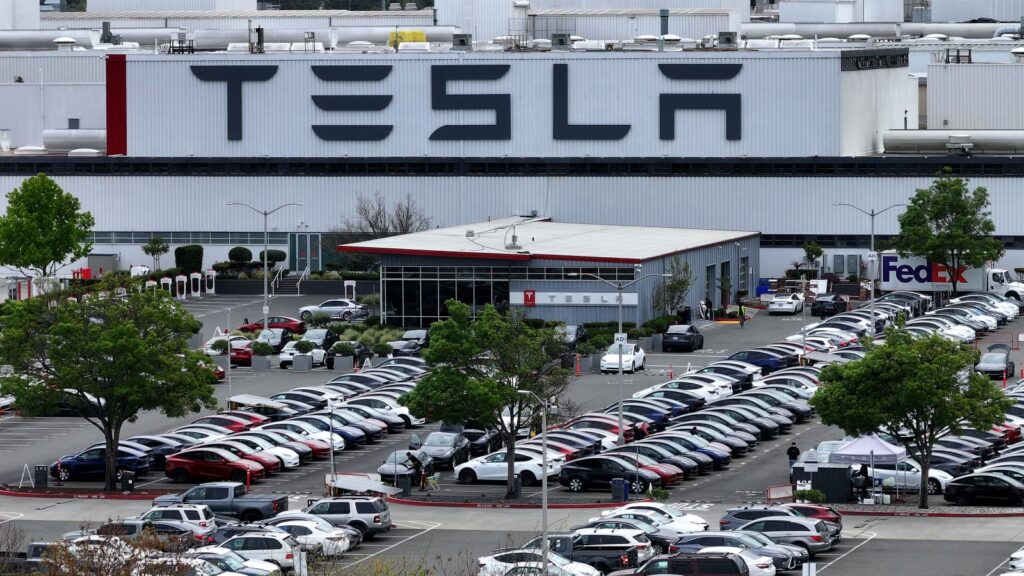In one of the company’s most significant markets, California had a 24% decline in Tesla vehicle registrations between April and June. This is the third straight quarter that sales in the state have decreased. Industry data issued on Thursday suggests that the producer of electric vehicles is facing increasing hurdles, as evidenced by the decline in registrations. Consumer preference for more economical hybrid automobiles is driving down demand for electric vehicles, with high borrowing rates and more competition being major contributing factors.
The decline in Tesla’s sales figures is a reflection of broader market dynamics affecting the electric vehicle sector. High interest rates have made financing more expensive, potentially discouraging consumers from purchasing new vehicles. Additionally, the rise of hybrid vehicles—offering a more cost-effective alternative to fully electric cars—has shifted consumer preferences. As a result, Tesla, once the undisputed leader in the electric vehicle market, is facing tougher competition and changing market conditions.
Compounding these challenges is the polarizing figure of Tesla’s CEO, Elon Musk. Musk’s political endorsements and outspoken comments have caused concerns about Tesla’s brand image, particularly in politically liberal states like California. His public support for conservative figures, including former President Donald Trump, has sparked controversy and contributed to a perception problem for Tesla. This endorsement came in the wake of a high-profile assassination attempt on Trump, further complicating the public’s view of Musk and his company.
According to the California New Car Dealers Association, Tesla’s registrations in California fell to 52,211 vehicles during the second quarter. Although the overall battery electric vehicle market experienced only a slight decline of 1.3% during this period, Tesla’s sales were hit harder. In contrast, sales of hybrid vehicles surged by 22% in California, underscoring a shift in consumer preference away from electric-only cars towards more hybrid options that offer a balance of electric and gasoline power.
The data reveals that Tesla’s allure might be diminishing, which could pose significant challenges for the company’s direct-to-consumer sales model. During the first half of the year, Tesla saw a 17% drop in registrations in California, while competitors like Hyundai Motor, Kia Motors, BMW, Mercedes-Benz, Ford, and Rivian experienced double-digit increases in sales. This stark contrast highlights the competitive pressures Tesla is facing from other automotive manufacturers, who are increasingly capturing market share in the growing electric vehicle sector.
Despite the declining market share, Tesla’s Model Y crossover remains the best-selling model in California. However, its market share has dropped from 64.6% in the previous year to 53.4% in the first half of this year. This decline indicates that while the Model Y continues to be popular, it is losing ground to competing models as the market evolves and more options become available to consumers.
Tesla moved its headquarters in 2021 from California to Texas as a calculated strategic move. Musk’s displeasure with California’s political and regulatory landscape was the driving force for this move. In response to criticism of California’s rules, Musk has intimated that he may move other businesses he is engaged with, including SpaceX and X (previously Twitter). As part of a larger conflict with California politics, Musk has specifically voiced his displeasure with Governor Gavin Newsom’s acceptance of a bill pertaining to transgender youth.
Tesla is set to report its quarterly results on Tuesday, and while the company managed to deliver more vehicles than analysts had expected during the second quarter, the total number of deliveries was still lower compared to the same period last year. This disparity underscores the ongoing challenges Tesla faces as it navigates a complex and rapidly changing market environment. The company will need to address these issues to maintain its competitive edge and continue its growth trajectory in the increasingly competitive automotive sector.
Tesla has a variety of obstacles due to the influence of Musk’s divisive public image, rising competition, high interest rates, and changing consumer preferences. A measure of the company’s overall challenges in retaining its market leadership is its performance in California, a significant market for its electric cars. In order to secure its future success in the dynamic automotive sector, Tesla will need to carefully handle these obstacles as it advances.
If you like the article please follow on THE UBJ.
